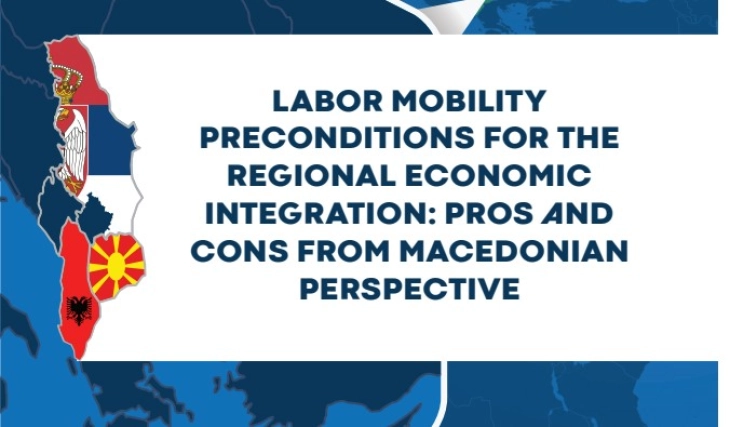Finance Think: More than 60% of unemployed have no designated occupation, with low or no education
- The Macedonian labor market faces surplus gaps in high skill occupations, except for workers in IT, reaching the maximum in educational occupations, where there are up to 71 unemployed persons for one job vacancy. On the other hand, six of eight low-skill occupations are in deficit, which is particularly pronounced for service and elementary workers, shows a study entitled "Labor mobility preconditions for the regional economic integration: Pros and cons from Macedonian perspective", published by Finance Think.

Skopje, 22 September 2023 (MIA) - The Macedonian labor market faces surplus gaps in high skill occupations, except for workers in IT, reaching the maximum in educational occupations, where there are up to 71 unemployed persons for one job vacancy. On the other hand, six of eight low-skill occupations are in deficit, which is particularly pronounced for service and elementary workers, shows a study entitled "Labor mobility preconditions for the regional economic integration: Pros and cons from Macedonian perspective", published by Finance Think.
The aim of the paper is to understand the potentials for labor mobility within a deeper regional economic integration, through quantitative analysis of the occupational and wage gaps, from the perspective of North Macedonia.
The paper points out that more than 60% of the registered unemployed persons have no designated occupation, with low or no education. Therefore, deeper regional integration of the labor market can encourage mobility that will increase the available set of skills on the market, and offer more employment and earning opportunities for persons in surplus occupations with higher skills.
According to Finance Think, although regional economic integration has its advantages in terms of labor mobility, it is more important to make structural reforms in the domestic economy, with the aim of reducing the differences in the supply and demand of labor and meeting the needs of the labor market, primarily with domestic workers. Therefore, the paper recommends adjusting labor market policies to prevent increase of the workers in
the surplus occupations, and creating tailor-made educational policies to steer creation of
workers in the deficit occupations.
The paper notes that the regional economic integration based on the four key freedoms - free movement of people, goods, services and capital, helps countries to overcome the constraints to economic growth created by the poor infrastructure, inefficient policies, geographic area and demographic shifts.
"The free movement of workers is one of the key freedoms of the regional economic integration that increases the mobility of labor regionally and/or internationally, in search for access to the labor market of the receiving country. According to latest data, nearly 162 million people moved in other country in search of employment. This trend is set to continue, mainly due to the wage gaps between the countries, rapid aging of the labor force in some countries and the technological development that makes easier for migrants to stay connected with their family," says Finance Think.
Photo: Printscreen Finance Think's paper







